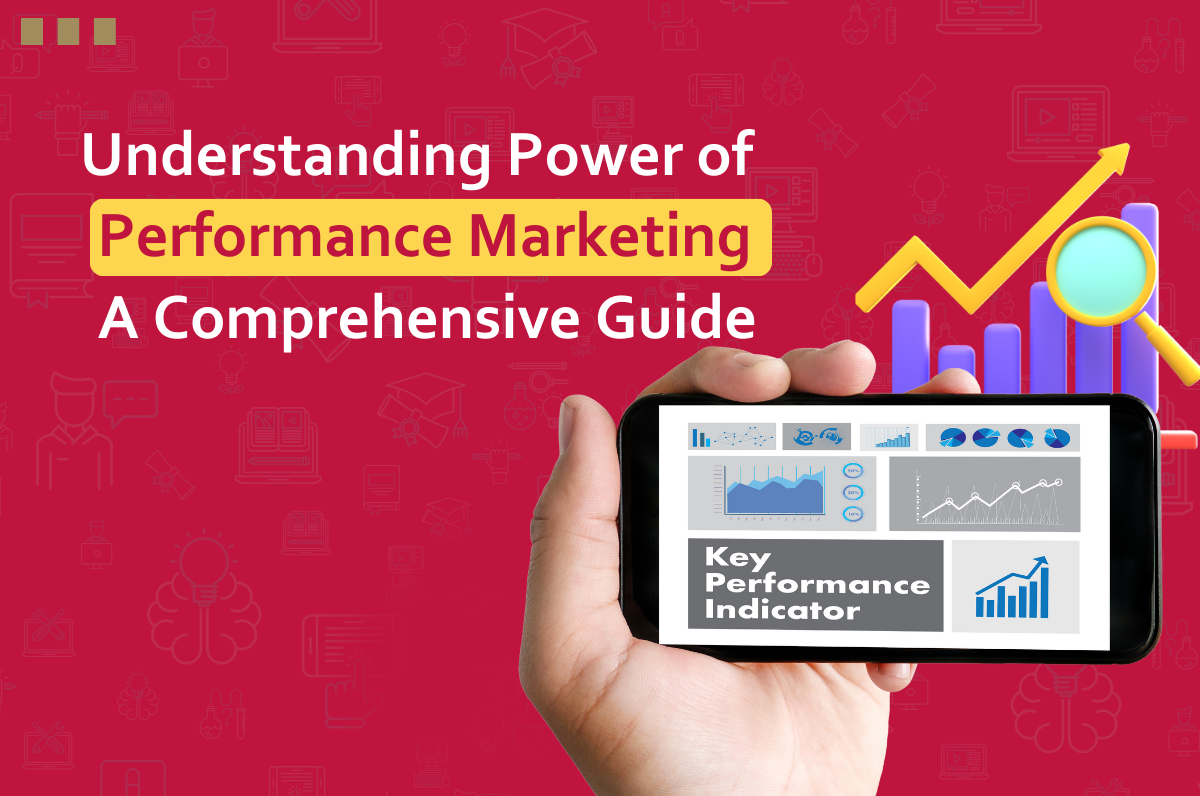Introduction:
In today’s fast-paced digital landscape, businesses are continually seeking innovative ways to boost their online presence and drive revenue. One such strategy gaining significant traction is performance marketing. In this comprehensive guide, we’ll delve into the intricacies of performances marketing, exploring its definition, mechanics, benefits, key metrics, diverse forms, and tips for success.
What is Performance Marketing?
Performances marketing represents a fusion of paid advertising and brand marketing, focusing on initiatives where affiliates and marketing entities are compensated based on the achievement of specific actions, such as leads, sales, bookings, or downloads. Unlike traditional advertising models, performances marketing relies on actual performance metrics, ensuring that advertisers pay only for tangible results.
Is Performance Marketing Synonymous with Affiliate Marketing?
While affiliate marketing falls under the broader umbrella of performances marketing, it constitutes a subset of the latter. Affiliate marketing involves affiliates earning commissions for promoting products or services of other individuals or companies, primarily through affiliate links. Performances marketing, on the other hand, encompasses various forms of performance-based advertising beyond affiliate partnerships, aiming to enhance overall company performance through targeted campaigns.
Understanding the Mechanics of Performances Marketing:
Performances marketing comprises four essential components: retailers or merchants, affiliates or publishers, affiliate networks and third-party tracking platforms, and affiliate managers or OPMs (outsourced program management). Each entity plays a crucial role in orchestrating campaigns and achieving desired outcomes, ensuring a symbiotic relationship between advertisers and affiliates.
Benefits of Embracing Performances Marketing:
Embracing performances marketing offers several compelling benefits for businesses:
- Enhanced Brand Awareness: Collaborations with affiliates and agencies enable businesses to tap into new demographic segments, amplifying brand visibility and attracting targeted traffic.
- Measurable Performance: Performance marketing provides unparalleled transparency and measurability, empowering businesses to track campaign effectiveness and make data-driven decisions.
- Mitigated Risk: By compensating affiliates solely upon desired actions, merchants mitigate financial risks while maximizing returns, fostering flexibility in budget allocation and experimentation.
Performance Marketing Metrics: Key Performance Indicators (KPIs):
Key performance indicators (KPIs) form the backbone of performances marketing, enabling businesses to evaluate campaign effectiveness and ROI. Notable metrics include Pay Per Sale (PPS), Pay Per Lead (PPL), Pay Per Click (PPC), and Lifetime Value (LTV), among others.
Diverse Forms of Performance Marketing:
Performances marketing encompasses various modalities tailored to meet diverse business objectives, including affiliate marketing, native advertising, sponsored content, social media marketing, and paid search marketing. Each modality offers unique advantages, catering to different audience preferences and marketing goals.
Tips for Success in Performances Marketing:
To excel in performances marketing, businesses should consider the following best practices:
- Optimize Landing Pages and Offers: Craft compelling offers and ensure seamless user experiences across landing pages to maximize conversion rates and affiliate engagement.
- Conduct A/B Testing: Continuously test and optimize campaign elements to enhance revenue-driving KPIs and improve overall performance.
- Choose Traffic Sources Wisely: Prioritize partnerships with reputable affiliates to drive quality traffic and enhance brand credibility.
- Embrace Comprehensive Tracking and Monitoring: Leverage advanced analytics tools to meticulously track campaign performance and gain actionable insights for optimization.
- Ensure Compliance: Adhere to regulatory frameworks and industry guidelines to foster trust and transparency in affiliate relationships, maintaining ethical standards and legal compliance.
Conclusion:
In conclusion, performances marketing represents a dynamic and cost-effective approach for businesses to drive growth and maximize ROI in today’s competitive digital landscape. By leveraging the diverse array of performance marketing modalities and implementing best practices, businesses can unlock new avenues for expansion and achieve sustainable success. If you’re eager to enhance your digital marketing skills and maximize your performances marketing efforts, consider enrolling in reputable digital marketing institutes like Incredible Point, renowned for their comprehensive curriculum and industry expertise. Join us on the journey to digital marketing excellence!
FAQ
Q1: What exactly is performance marketing?
A1: Performances marketing is a type of advertising strategy where advertisers pay affiliates or marketing entities based on the completion of specific actions, such as sales, leads, bookings, or downloads. It focuses on measurable results rather than just exposure or impressions.
Q2: How is performances marketing different from traditional advertising?
A2: Unlike traditional advertising models where advertisers pay upfront for ad placement regardless of its effectiveness, performance marketing ensures that advertisers pay only when desired actions are completed. This approach minimizes financial risk and maximizes return on investment (ROI).
Q3: What are the key components of performance marketing?
A3: Performances marketing comprises four essential components: retailers or merchants who seek promotion, affiliates or publishers who promote products/services, affiliate networks, and tracking platforms that facilitate tracking and attribution, and affiliate managers or OPMs who oversee affiliate programs.
Q4: What are the benefits of embracing performance marketing for businesses?
A4: Embracing performances marketing offers several benefits, including enhanced brand awareness through targeted campaigns, measurable performance metrics for informed decision-making, and mitigated financial risks as advertisers pay only for actual results achieved.
Q5: What are some common performance marketing metrics used to measure success?
A5: Key performance indicators (KPIs) in performance marketing include Pay Per Sale (PPS), Pay Per Lead (PPL), Pay Per Click (PPC), Pay Per X (PPX), and Lifetime Value (LTV). These metrics help businesses gauge campaign effectiveness and ROI.
For more Blogs – Best Lead Generation Course in Dwarka, Performance Marketing Course in Delhi, Best Content Marketing Course in Dwarka, Google Ads digital marketing in Dwarka

